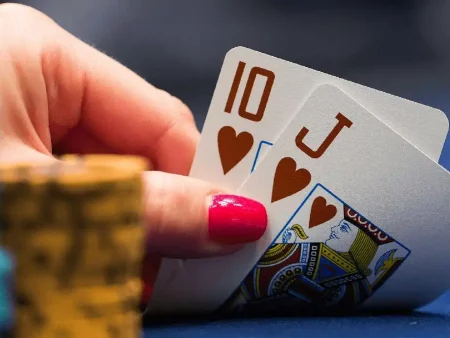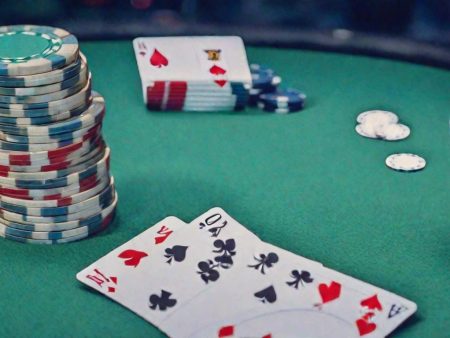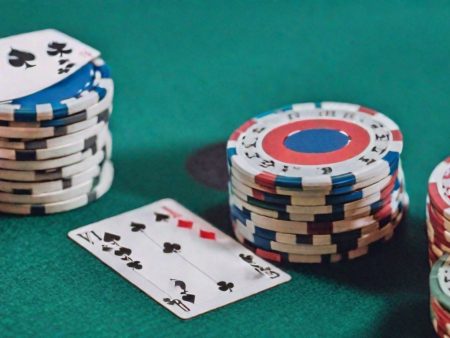In poker, there is a special category of players often referred to as “fish” or “recreational players.” These individuals come to the game primarily for fun, rather than to make money or compete at a professional level. They play for enjoyment and usually lack deep strategic knowledge of the game. These players add diversity and excitement to the poker community, as their play style contrasts with that of experienced professionals.
How to Recognize a Recreational Player
If you sit at a table and see someone who doesn’t seem overly concerned with their bets, makes strange calls, or raises without much thought, chances are you’re facing a recreational player. Here are some key signs that will help you spot a “fish”:
- Main Goal – Entertainment. Recreational players are not focused on making money; they play simply to enjoy themselves. Their goal is to have fun, feel the excitement, and enjoy the emotional highs of the game.
- Limited Experience. Recreational players typically aren’t familiar with the advanced strategies of poker. They may not fully understand the math behind the game and tend to rely on intuition rather than logic.
- Low Stakes Games. These players tend to choose tables with lower stakes to avoid high financial risks. For them, poker is a way to unwind, not a means of earning money.
- Irregular Play. Unlike professionals who play regularly, recreational players join the game only occasionally, usually when they have free time or a desire to relax.
- Social Aspect. For many recreational players, poker is not just a game, but a way to spend time with friends or meet new people. The social element adds to the appeal.
Recreational players play a crucial role in the poker community. Their involvement brings life to the game, and many online casinos offer bonuses that make poker more accessible and enjoyable for those who play for fun, not profit.
Read also: Postflop in Poker: Tactical Rules and Strategic Games.
Strategy for Playing Against Recreational Players
Playing against fish can be both fun and profitable, but it requires a different approach. The strategies you use against them often differ from those you would use against experienced players. Here are a few tips that will help you beat recreational players:
- Capitalize on Their Mistakes. Recreational players tend to make errors in their betting, make odd raises, and take incorrect actions. Take advantage of these mistakes when you can.
- Be Careful with Bluffing. Recreational players often don’t understand the concept of bluffing and might call with weak hands. Be cautious with bluffing, and use it only when it’s truly advantageous.
- Position Matters. Pay attention to your position at the table. Position gives you more information, which is crucial when making decisions.
- Observe Their Play Style. Recreational players can be unpredictable, so it’s important to watch their actions carefully. Keep track of their habits and adjust your play accordingly.
- Be Flexible. Traditional strategies don’t always work against fish. Sometimes, you’ll need to adapt and change your approach mid-game to effectively counter their unpredictable decisions.
- Manage Your Bankroll. Since games with recreational players can be unpredictable, the losses may add up quickly. It’s important to control your money and not risk more than you can afford to lose.
Read also: Poker hands and their reading in online play.
What Recreational Players Need to Know
If you’re someone who plays poker just for fun, here are a few tips to help improve your game and even win occasionally against more experienced players:
- Master the Basics. Before you sit down at the table, make sure you understand the basic rules and strategies. This will help you feel more confident and avoid common mistakes.
- Set Limits. Decide in advance how much money you’re willing to spend and stick to it. This will help you avoid getting into situations where you lose more than you intended.
- Control Your Emotions. Poker can be an emotional game. It’s important not to let frustration or anger affect your decisions. Remember, everyone faces setbacks.
- Analyze Your Game. After each session, take time to reflect on your actions. Think about what you could have done differently and which aspects of your game need improvement.
- Observe Your Opponents. The more you pay attention to your opponents, the better your decisions will be. Learn to spot their weaknesses and exploit them to your advantage.
- Take Advantage of Freerolls. Freerolls are great for beginners or players with limited bankrolls. They offer a chance to practice and even win real money without any risk.
- Socialize with Other Players. Poker is not just a game but a community. Talking to others who play for fun can help you learn new strategies and immerse yourself in the poker world.
- Be Patient. Like any game, skill comes with experience. Don’t expect to become an expert overnight. Over time, your abilities will improve, and you’ll find more enjoyment in the game.
Have Fun. Above all, remember that poker is a game. It should bring you joy. If you focus on having fun, success will follow naturally. Looking for strategies that actually work? Go to the gaming strategy guide and explore verified methods!
FAQ: Recreational poker players
Who are recreational poker players?
Recreational poker players are individuals who play poker primarily for enjoyment rather than as a source of income.
They typically view poker as a fun pastime or a way to socialize with others, without the pressure of earning a profit.
What distinguishes recreational poker players from professionals?
Recreational players focus on entertainment, often playing infrequently and without a structured strategy.
In contrast, professionals approach poker as a career, dedicating significant time to studying strategies, analyzing opponents, and maximizing profits.
Why are recreational players important to the poker ecosystem?
Recreational players bring balance to the poker ecosystem by creating opportunities for competition and interaction.
Their participation ensures a steady influx of funds into games, making them appealing for both casual and professional players.
What are the common traits of recreational poker players?
Recreational players often exhibit the following traits:
- Play for fun, not profit.
- Use loose or unpredictable strategies.
- Enjoy socializing during games.
- Are less concerned with advanced tactics or statistical analysis.
What strategies do professional players use against recreational players?
Professional players often adapt to the tendencies of recreational players by:
- Exploiting loose or passive play styles.
- Avoiding over-complicated bluffs.
- Staying patient and waiting for strong hands to capitalize on mistakes.
Can recreational players win against professionals?
Yes, recreational players can win against professionals, especially in the short term.
Poker involves an element of luck, which allows less experienced players to succeed occasionally, even against highly skilled opponents.
What are the benefits of being a recreational poker player?
Recreational players enjoy poker without the stress of relying on it as a source of income.
They can focus on the social and entertainment aspects, making it a more relaxed and enjoyable experience.
How can recreational players improve their game?
Recreational players can improve by:
- Learning basic strategies and odds.
- Avoiding common mistakes like playing too many hands.
- Observing opponents’ patterns and adjusting their play accordingly.
- Practicing consistently to gain experience and confidence.
What challenges do recreational players face in poker?
Recreational players may face challenges such as:
- Being outplayed by more experienced opponents.
- Managing their bankroll effectively.
- Balancing the fun aspect with the competitive nature of the game.
How do poker platforms attract recreational players?
Poker platforms attract recreational players by:
- Offering user-friendly interfaces and engaging game modes.
- Providing low-stakes games and freerolls.
- Ensuring a welcoming environment with social features and fair play policies.






